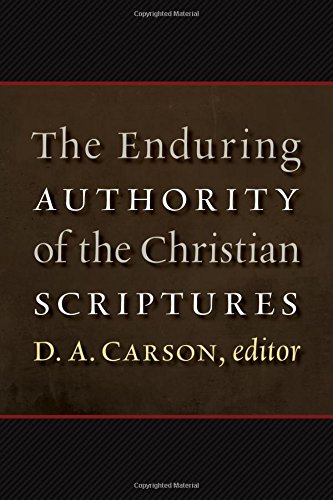A Brief Book Summary from Books At a Glance
Editor’s Note: Today we continue our series of “bonus” summaries covering all thirty-six chapters of the monumental volume, The Enduring Authority of the Christian Scriptures (D.A. Carson, ed.).
Chapter 5: German Pietism and Scriptural Authority: The Question of Biblical Authority
by John D. Woodbridge
(summarized by Mark Coppenger)
In 1982, John Woodbridge published Biblical Authority: A Critique of the Rogers/McKim Proposal, a devastating response to their 1980 book, Authority and Interpretation of the Bible: An Historical Approach, which presumed to show that the notion of biblical inerrancy was a latter-day concoction, alien to the balance of church history. In this chapter, he similarly takes on Donald Dayton’s claim that Pietists were more than indifferent to inerrancy, but, rather, outright hostile toward it.
While granting that a few with Pietist Backgrounds, e.g., Johann S. Semler and Johann David Micahelis, embraced “higher criticism,” the original Pietists, Philipp Jakob Spener and Hermann Francke, and a host of others, were firmly committed to the authority of scripture. While they put fresh emphasis on a vital faith, characteristic of those who’d been “born again,” they didn’t do so at the expense of questionning Bible truth. As Spener put it,
This much is certain: the diligent use of the Word of God, which consists not only of listening to sermons but also of reading, meditation, and discussing (Ps. 1:2) must be the chief means for reforming something . . . . The Word of God remains the seed from which all that is good in us must grow. If we succeed in getting the people to. . .
The remainder of this article is premium content. Become a member to continue reading.
Already have an account? Sign In
